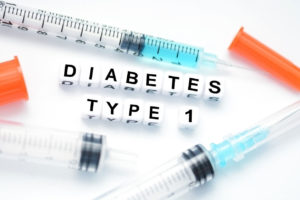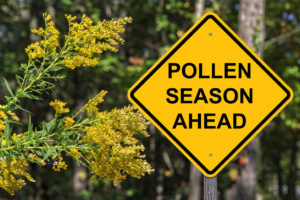Contrary to popular belief, type 1 diabetes is not only a childhood disease. Although it usually strikes in people under the age of 20, it can occur at any age, in every race, and to people of every shape and size.
Diabetes is a disease that affects how the body uses glucose, a sugar that is used as a source of fuel for the body. Normally, the hormone insulin helps glucose enter the cells where it is used for energy. People with type 1 diabetes do not produce insulin. As a result, glucose does not get into the body’s cells and stays in the bloodstream. Too much sugar in the blood makes people ill and can result in medical complications. Therefore, people with type 1 diabetes have to monitor their blood glucose levels constantly and appropriately administer insulin every day of their lives.
Unfortunately, there is no cure for type 1 diabetes, but there are many things you can do that will help you manage your condition in order to live a long and healthy life.
Get the Right Support
Every person who has diabetes should have a personal plan and a health care team. You’re in charge of putting that plan into action, but you don’t have to compile it on your own. Speak to your family medicine provider about setting up the right support for you. This should include an endocrinologist, a nutritionist, or a dietitian, and you may even want to include a podiatrist and an ophthalmologist and a diabetes educator to explain to you how to live better with the condition.
Get Regular Checks with Your Health Care Team
Talk with your health care team regularly, and keep them in the loop on your condition. High blood sugar can affect organs and tissues throughout your body. Even if your diabetes is controlled well, health problems can still arise – so it is important to get checked out regularly and watch for warning signs such as sores that don’t heal, swelling, tingling, or numbness in your hands and feet, and blurred or double vision. You should report these concerns early on so they can be treated quickly before getting worse. You can slow or even stop the damage if you act quickly.
It is vitally important to see your endocrinologist at least every 90 days and have your longer-term blood sugar levels checked. A Hemoglobin A1c test tells you and your family medicine provider what your blood sugars are doing over a 90-day period and helps tremendously in managing the disease.
Watch What You Eat and When You Eat
It is a good idea to have a healthy meal plan in place which includes complex carbohydrates, protein, fiber, lots of green, leafy vegetables, and limits to the amount of fat in your diet – especially saturated fats such as bacon, sausage, and full-fat dairy. Saturated fat raises your chance of heart disease, and with diabetes this increases your risk further. Making smart food choices can lower that risk.
Carbohydrates are found in many foods including grains, fruits and vegetables, dairy products, and sugars. They are your body’s main source of energy, but they raise your blood sugar levels faster than any other food – so knowing how many and what type of carbs you can eat can affect how well you manage your diabetes.
It is a good idea to work with your family medicine provider or dietician to establish a personalized eating plan to figure out how many grams of carbs you should be eating throughout the day and try to ensure you are eating a healthy, balanced diet.
Eating little and often rather than the usual three meals a day is more likely to keep your blood sugar levels stable than going long periods without eating.
Get Active
Regular physical activity can help you lose extra weight, keep blood sugar levels healthy, and lower your blood pressure. It can also improve your sleep, mood, and reduce feelings of stress and anxiety, which can all negatively affect blood glucose levels.
Just 5 minutes of walking can dramatically reduce your blood glucose levels. Try to find a form of exercise you enjoy, whether this be individually or in a group.
It is important to keep a close eye on your blood sugar levels before, during, and after exercise, because it can raise or lower your levels and can even trigger hypoglycemia.
Take Advantage of Advancements
Diabetes management has come a long way. Be sure to take advantage of the tools and technology that exist to help aid in the daily management of the disease.
Make sure you have a blood glucose monitor and that you do regular checks (at least four per day). Most monitors use a very small drop of blood and display the results very quickly. There is even a monitor available that requires no finger sticks at all.
Consider getting a CGM as well. A CGM is a continuous glucose monitor. The device is a small sensor you wear on the skin that reads and displays blood sugar results every 5 minutes automatically. This allows you to know what your blood sugars are doing 24 hours per day. The results display through your smartphone, and alarms signal an oncoming low or high, allowing you to stay ahead of blood sugar changes.
Instead of injections, consider an insulin pump. An insulin pump can help you manage your diabetes by matching your insulin to your lifestyle, rather than getting an insulin injection and matching your life to how the insulin is working. Insulin pumps deliver short-acting insulin 24 hours a day through a catheter placed under the skin. You then deliver insulin through the pump based on the number of carbohydrates you will eat at mealtime or to correct a high blood sugar. There is even a wireless pump available that allows you to wear it discreetly on multiple places on the body as well as swim and shower with it.
Be Kind to Yourself
Living with diabetes and its daily demands can be stressful, so it’s really important to focus on and feel good about your achievements. Don’t be overly critical of yourself if you fall short of a goal, and give yourself credit when you are successful at managing your blood sugar. Remember to do the best you can do and keep a positive attitude.
At Advanced Medical, PA, we pride ourselves in providing personal and individualized, quality health care. Our experienced medical staff take the time to get to know our patients, and we are here to help you manage diabetes and other chronic conditions. To learn more about us and the services we offer, or to arrange a visit, call us at (561) 434-1935 or request an appointment. We are always happy to answer any questions you may have about our practice and the primary care services we provide.











